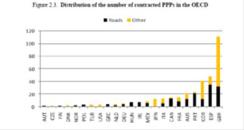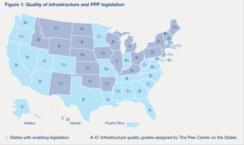Even after this year’s equities rally, some market imbalances created by the financial crisis in 2008 have not disappeared. When these distortions unwind, we expect deep value stocks to rapidly recover.
It’s understandable why investors became so risk averse after global markets collapsed five years ago. But we think it went too far. The crisis prompted a seismic shift in how investors think about returns, as people lost faith in the ability to profit from the capital appreciation of stocks.
As a result, flows to fixed-income funds dwarfed flows to both US and non-US equity funds from 2008 to 2012 (see chart 1), as investors preferred assets perceived as safer. Passive equities have become increasingly popular, while investors have shunned active strategies. And investors flocked to equity strategies focused on stocks with higher dividend yields while abandoning large-cap value equities, which are considered among the riskier types of stock investments.
By piling layer upon layer upon layer of safety, investors may have actually achieved the opposite. The perceived shelters of government bonds and high-yield equities are both sensitive to the same market forces: macroeconomic concerns and interest rates. When sentiment shifts and interest rates begin to rise, the layers of safety are likely to unravel; in this scenario, investors may discover that their diversification was an illusion and that they have less protection than expected.

Even investors shifting toward passive equities have unwittingly exposed themselves to the same risks. For example, by late 2012, 42 percent of the S&P 500 Index’s total market capitalization was invested in high-dividend-yield stocks, near the top of its historical range since 1970. Meanwhile, only a quarter of the market was invested in stocks with low price to book (P/B) values, toward the bottom of its historical range.
What’s behind this preference for high-yielding stocks? In the past, investors typically bought stocks to benefit from future growth and earnings. But in an environment where nobody believes that the economy or corporate profits can grow again, riskier higher-beta stocks have been shunned. Many low-beta stocks, which are generally perceived as safer and more stable investments, are in fact highly correlated with bond yields (see chart 2). So when bond yields eventually rise from current historical lows, these stocks are unlikely to provide much protection. In contrast, deep-value, low P/B stocks are negatively correlated with bond yields, so they can be expected to perform better as bond yields rise.

In recent months, there are initial signs of a revival of confidence in equities, as flows into stock funds have started to pick up again. However, investors are still scarred by the crisis years. In the past, a relatively narrow range of outcomes for a given investment scenario gave investors confidence to put their money in assets that would take a longer time to pay back a larger reward. But after the crisis, the range of outcomes seems much wider—and the downside is much more frightening.
Lower tolerance for uncertainty and a lingering concern that the environment remains highly uncertain have led many investors to rein in their time horizons substantially. Against this backdrop, deep-value stocks, which typically take a very long time to work their way out of controversy and deliver big returns, are simply not on many investors’ radar screens.
While the deep insecurity that investors feel has undermined value investing, we think the recovery potential for deep-value stocks will be huge when market distortions unwind. Since the distortions are so acute, we believe that a repricing of deep-value stocks could happen very quickly.
The views expressed herein do not constitute research, investment advice or trade recommendations and do not necessarily represent the views of all AllianceBernstein portfolio-management teams.
Joseph G. Paul is Chief Investment Officer of US Value Equities and Kevin Simms is Chief Investment Officer—International Value Equities, both at AllianceBernstein.






